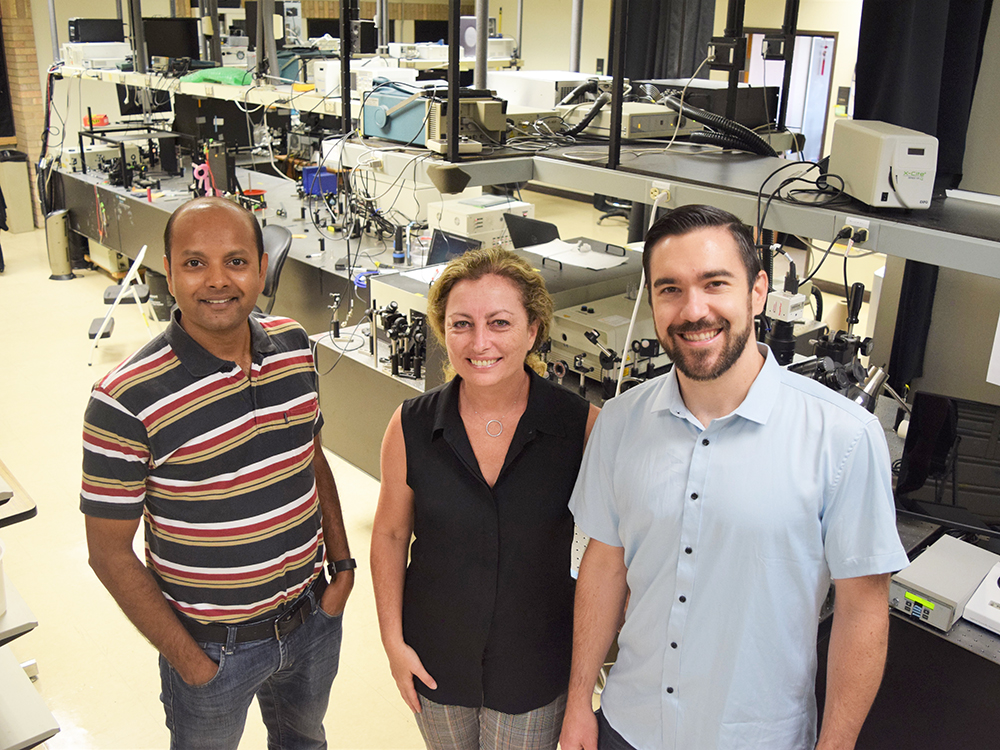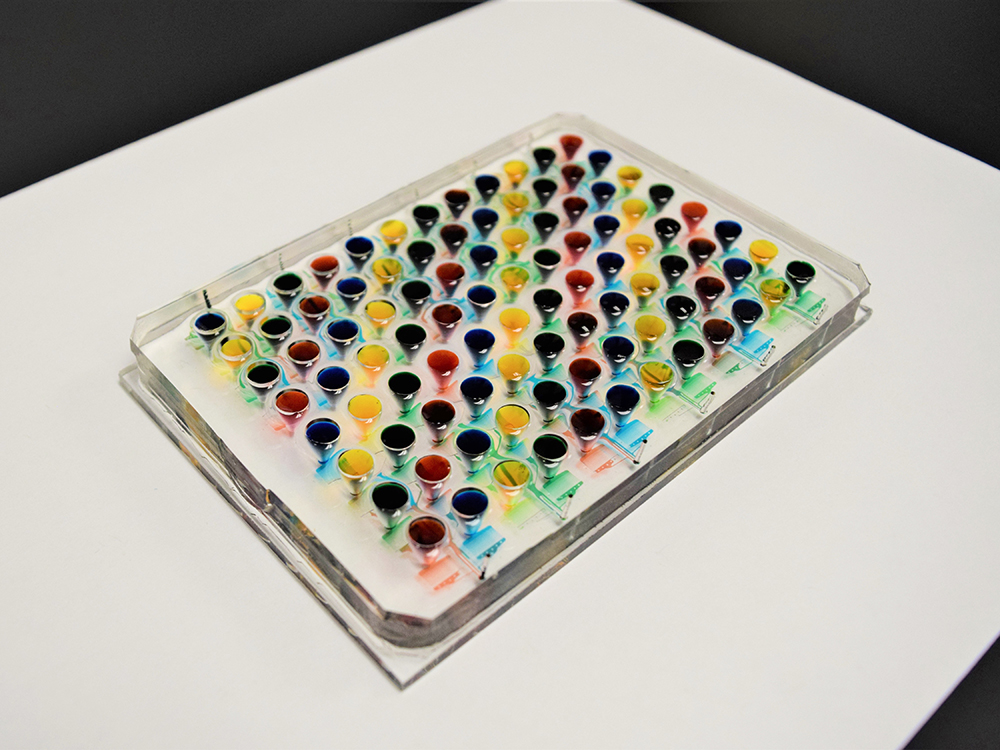UT Spinout Newormics to Test HIV-AIDS Treatments Using Novel Worm Screening Platform
There remains no single cure to HIV, but a combination of different drugs can keep the deadly disease at bay and allow people to live long and healthy lives. But every medication, especially combinations of drugs, can lead to challenging side effects.
Newormics, a drug screening spinout created at The University of Texas Austin’s Cockrell School of Engineering, received a National Institutes of Health Small Business Innovation Research grant to perform advanced testing on HIV antiviral drugs. The three-year grant will help the startup, founded and led by Walker Department of Mechanical Engineering professor Adela Ben-Yakar, grow while narrowing its primary focus.
Newormics will run more than 20 different HIV-AIDS drugs through its platform. Ben-Yakar noted that some HIV drugs have shown the potential for increased neurotoxicity in patients, and that can lead to brain damage or issues with the nervous system. The program could be scaled up to include tests of other antiviral drugs, including potential treatments for the novel coronavirus.
Right: Newormics’ drug testing platform.


Spun out in 2016 to commercialize Ben-Yakar’s drug discovery research, the company provides a middle ground for screening everything from pharmaceuticals to agricultural products to cosmetics. Most testing today uses either single cells or animals.
“From single-cell tests to large animals, there’s a huge gap in the complexity of biological studies,” Ben-Yakar said. “We’re doing something in between that doesn’t cost animal lives or years of studies.”
Newormics’ platform uses 1-millimeter-long roundworms, called Caenorhabditis elegans (C. elegans), to perform tests. The worm was the first multi-cellular organism to have its genome sequenced, and it has a full nervous system. It represents a good analogue for how products might affect humans as they share roughly 60% to 70% of the same genes, Ben-Yakar said.
Testing live organisms presents complications because they move around. But Ben-Yakar’s platform takes the shape of a cellphone-sized chip that can quickly immobilize thousands of these worms inside micro-traps so they can be analyzed in less than 10 minutes.
“We are testing with the speed and cost of using single cells but producing data that is orders of magnitude richer,” she said.
The platform also includes imaging software that can understand and interpret data. Newormics can perform high-throughput screening, the ability to study thousands of compounds rapidly, helping to assess the efficacy of several drugs simultaneously.
Currently, Newormics has six employees, including Evan Hegarty, co-founder and director of manufacturing who worked on the technology as a UT student. The company is actively hiring for three more positions and beginning to look for a permanent office space.
